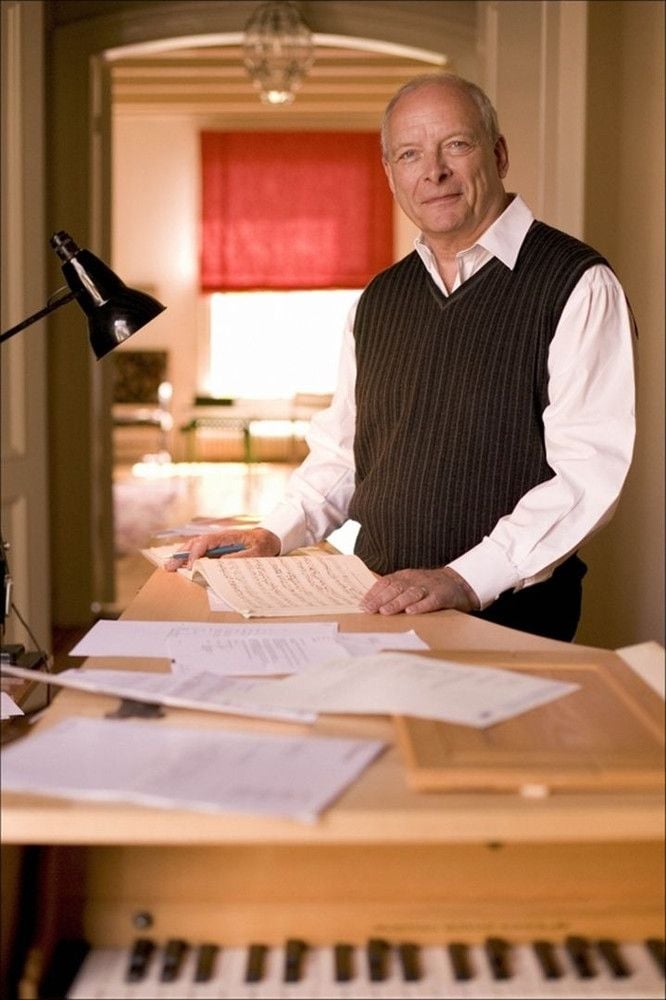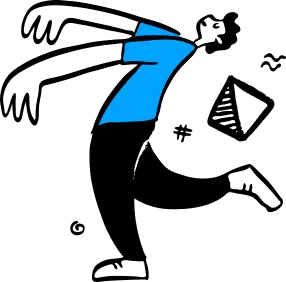Christopher Hogwood was one of the most prominent conductors of period-instrument performances of Classical and Baroque music. He studied classical literature in addition to music at Pembroke College, Oxford, where he obtained a bachelor's degree in 1964. His harpsichord instructors were Rafael Puyana and Gustav Leonhardt. Leonhardt, British harpsichordist Thurston Dart, and conductor Raymond Leppard, all prominent in early music research and performance, influenced Hogwood's career path. The British Council gave him a scholarship, enabling him to spend a year in Prague at the Charles University and the Prague Academy of Music.
In 1967 David Munrow and Hogwood co-founded the Early Music Consort to undertake authentic performances of medieval music. Munrow's approach attracted fans and raised eyebrows. The performances were lively, with driving dance rhythms, and the group began to record extensively.
In 1973 Hogwood founded the Academy of Ancient Music, taking its name from a London music society and orchestra of the 18th century. Hogwood's group was the first British ensemble formed to play music of the Baroque and early Classical periods on original instruments, a more elegant specialty than that of Munrow's group. The AAM quickly became one of the most popular and influential organizations in the "authentic performance" movement. (Hogwood preferred the less confrontational term "historically informed performance" to "authentic.") They recorded frequently on Decca's imprint L'Oiseau-Lyre and forged forward into High Classicism, releasing complete sets of Mozart and Haydn symphonies. Hogwood's interpretations were instantly recognizable, with a restrained, technically perfect style that diverged fundamentally from the glittering Baroque performances that were the norm.
Hogwood did not limited his activities to period-instrument groups or Classical and Baroque music. Since 1981 he regularly conducted leading American orchestras, and he conducted his first opera in America in 1983, a production of Mozart's Don Giovanni in St. Louis. He brought to standard-instrument ensembles many of the interpretive principles he developed from his research, and often juxtaposed his Baroque and Classical interpretations with 20th century music of the neo-Classical style, from such composers as Stravinsky, Martinu, and Tippett.
From 1983 to 1985 he was artistic director of London's Mostly Mozart Festival at the Barbican Centre, and was conductor laureate of the Handel & Haydn Society, Boston's historic concert organization, which now includes America's leading orchestra of period instruments. He was musical director of the Saint Paul Chamber Orchestra from 1987 to 1992. He regularly guest conducted and served as director for a number of festivals. In 2000, he was named principal guest conductor of the Kammerorchester Basel, taking on the same position with the Orquesta Ciudad de Granada the following year.
Hogwood said that his busy schedule afforded him insufficient time to teach, but he took a step toward correcting that state of affairs in 1992 when he was named visiting professor of Early Music Performance at the Royal Academy of Music in London, and a visiting professor at King's College, London. He taught frequently at Harvard and was an honorary professor at the University of Cambridge. Hogwood also published several widely praised books, including a biography of Handel.









